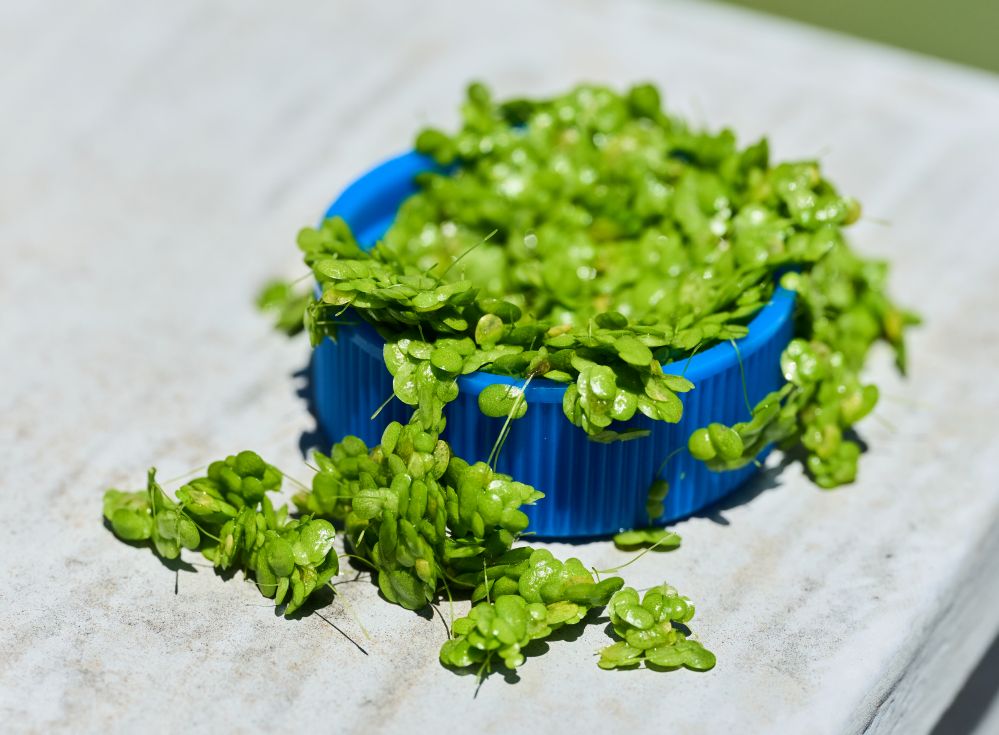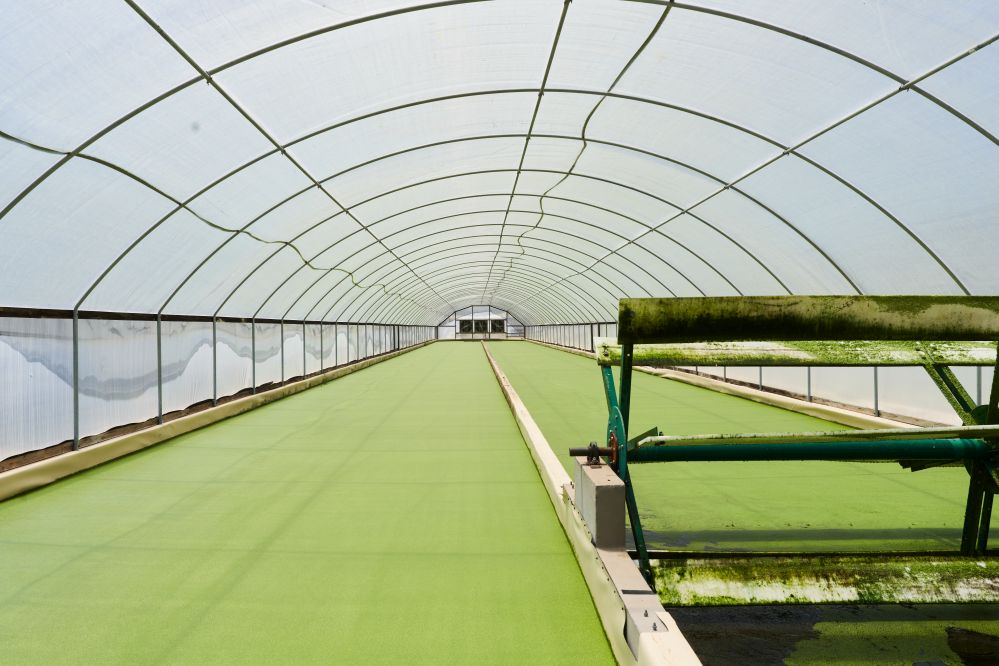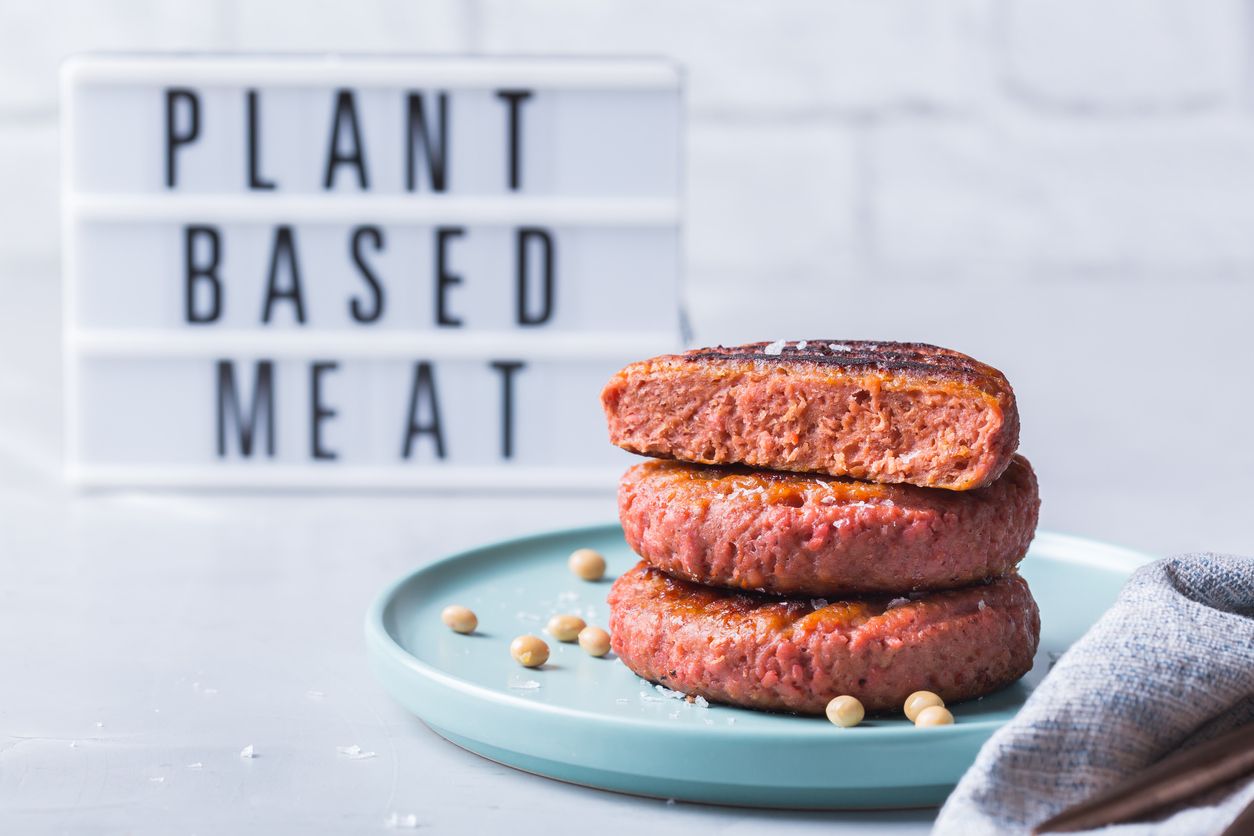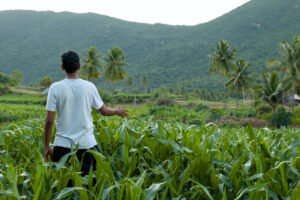- San Diego-based startup Plantible Foods has teamed up with ICL Food Specialties to create a clean label alternative to methylcellulose, a chemically modified binder that has become ubiquitous in meat alternatives.
- Featuring RuBisCO (‘Rubi Protein’), a highly functional protein that Plantible extracts from fast-growing aquatic plant lemna (a.k.a. duckweed), the binding solution can replace eggs and most chemically processed binders such as methylcellulose in plant-based meat and seafood.
- It will be available in the US in 2024 as part of a multi-year agreement between Plantible and ICL.
Why replace methylcellulose?
Used by leading brands including Beyond Meat and Impossible Foods, methylcellulose (E461 in the EU) is a chemically modified form of cellulose (a natural substance in plant cells) that is soluble in cold water, forms a gel at higher temperatures, holds plant-based meat products together as they cook, and boosts succulence and juiciness. The gel is ‘thermo-reversible,’ such that when it cools down, it returns to a viscous solution.
While none of the major US retailers or foodservice brands feature methylcellulose on their ‘unacceptable ingredients’ lists, it is frequently cited as evidence of the ‘highly processed’ nature of some plant-based meat products and was referenced in a lawsuit against Beyond Meat last year challenging the ‘natural’ credentials of its burgers.
Firms currently working on alternatives include Fiberstar, which claims citrus fiber could replace methylcellulose in combination with agar, native starch, and psyllium; Shiru, which has teamed up with CP Kelco and Puratos to develop replacements; and Eggmented Reality, which uses precision fermentation to create proteins with gelling and binding properties.
‘This will render methylcellulose obsolete’
According to Plantible chief commercial officer Morgan Keim, the new solution co-developed by ICL and Plantible (‘ROVITARIS Binding Solution powered by Rubi Protein’) outperforms methylcellulose “by a mile both texturally and nutritionally.”
ICL Food Specialties (which is part of global specialty minerals co. ICL Group) is not yet publicly disclosing which ingredients it is combining with Rubi protein to create the binder, but they are all clean label, Keim told AgFunderNews.
“This will render methylcellulose obsolete. RuBisCO Rubi Protein is the magic ingredient within the formulation, but there are also a couple of things that create a synergistic effect. And when it cools down, the products retain their firmness, whereas with methylcellulose, after you’ve cooked a plant-based burger and it cools down, it gets kind of doughy.”
According to a white paper released by ICL Food Specialties and Plantible: “Rubi Protein exhibits the highest gel hardness value among food proteins… at a 4% protein concentration. It surpasses the egg white gel hardness at the same concentration. In contrast, other plant proteins from soy, pea, and mung bean are unable to form self-supporting gels at 4%.
“Unlike products relying on methylcellulose as a binding agent, the samples with the ROVITARIS Binding Solution (RBS) also displayed no cook loss during the cooking period under assessment, leading to an increased yield for ready-to-eat products and improvements in sensory quality.”
He added: “We’ll be sampling at [the] SupplySide West [trade show in Las Vegas] this week, and then we’ll do initial customer trials in early Q1 with the intention to commercialize later in 2024.”

Rubi Protein
Founded in 2016 by Dutch entrepreneurs Tony Martens Fekini and Maurits van de Ven, Plantible extracts RuBisCO, a protein found in all leafy greens, from lemna (a.k.a. duckweed).
A free-floating aquatic plant that grows without pesticides and doubles in mass every 48 hours, lemna has key advantages over other plant protein sources in that it contains all the essential amino acids with a protein digestibility (PDCAAS) score of 1.0 (equivalent to animal protein). It can be harvested in open ponds similar to those in which some algae is grown commercially all year around.
Plantible has a pilot facility near San Diego that serves as its R&D hub, and a larger-scale lemna farm and processing facility in Eldorado, Texas, where it extracts RuBisCO from lemna via a mechanical process that removes chlorophyll and other components, leaving a complete protein with a neutral taste, odor and color.
With vegan credentials, but functional properties akin to animal proteins (emulsifying, gelation, binding) at low inclusion rates, Rubi Protein is attracting interest in baked goods, meat alternatives, plant-based dairy products, and sports and adult nutrition products. In the US, it is self-GRAS (Generally Recognized as Safe) and can be listed on ingredient labels as ‘lemna leaf protein.’
Rubi Whisk egg replacer
Plantible’s first commercial product containing Rubi Protein is a plant-based egg replacer called Rubi Whisk, which can replace eggs in everything from breads and pastries to donuts and cookies, said Keim.
It is nearly 100% soluble in water, forms stable emulsions when mixed with oil and water at high speed, and can be whipped into stiff peaks in three minutes.
“We’re seeing massive customer demand that exceeds our ability to deliver,” said Keim, “so we’re ramping up at our facility in Texas and racing to keep up with it.”

‘The demand is there’
To date, Plantible has raised just over $30 million from backers including Korean food giant CJ CheilJedang and Kellogg’s venture arm eighteen94 capital.
“It’s a tough market, but we’re advancing discussions about raising more funding, both debt and equity, to grow our footprint and achieve scale and affordability, which are the two key pillars,” said Keim.
“So you never say anything till the money’s in the bank, but we’re very optimistic about the direction things are going because it’s rooted in customer demand, and that’s ultimately why I think we’re getting maybe a different response than some other people in the market [who are trying to raise money].
“We’re working on or have signed contracts that extend to the hundreds of metric tons per year range. We just need the ability to grow our footprint so we can deliver on that customer demand that we already know is there.”
Below: Plantible cofounder and CEO Tony Martens shares the origins story of the business…





